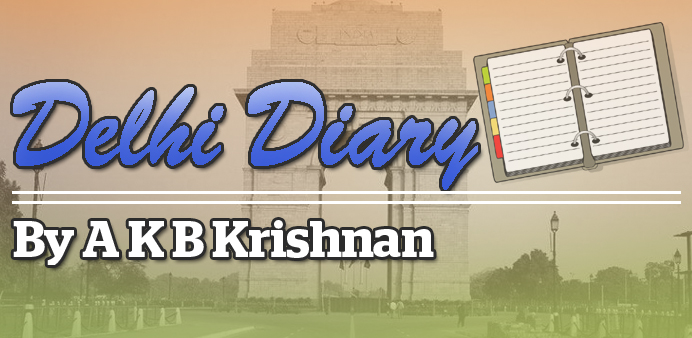Politicians are the finest exponents of the dictum “you scratch my back, I scratch yours.” In power, out of power, they are mostly there to help each other even as they help themselves to no extent.
This particular trait manifests itself in many forms, sometimes in unison, as when they want an increase in salary and other perks or when they, as a lot, are under attack from other arms of democracy, as in the case of the Supreme Court passing strictures or striking down certain legislations passed unanimously by parliament.
At times it also comes out in the form of shouting matches and even in fisticuffs on the floor of the House as had happened many a time in parliament and state assemblies from Kashmir to Kerala.
But at the end of the day, much like the generals in battles of yore, truce is called and these very same politicians, who had threatened to go at each other’s throats, retire to their cosy clubs to have a fireside chat and more. Until the next day that is.
This give-and-take, in more sense than one, does not confine to those bound by family ties, as in the case of IT Minister Ravi Shankar Prasad of the BJP and Congress MP Rajiv Shukla (brothers-in-law), Rajasthan Chief Minister Vasundhara Raje and Congress MP Jyotiraditya Scindia (aunt-nephew) or Rajasthan Congress chief Sachin Pilot and National Conference chairman and former minister Farooq Abdullah (son-in-law and father-in-law).
Business interests (read money) cut across all political ideologies to find common ground for a political chorus of “another day done, another dollar won”.
So when the Congress-led opposition seems to be going hammer and tongs against the Narendra Modi government for the alleged sins of his Foreign Minister Sushma Swaraj or Madhya Pradesh Chief Minister Shivraj Singh Chouhan of the BJP or Vasundhara Raje, we must understand that much of it, if not all, is for public consumption because the after-hour back-slapping will go on without let or hindrance.
If you stay to argue further, the Congress will tell you it is only doing to the BJP what the BJP did to it a couple of summers ago. Or is it that the BJP wanted to give the Congress a chance to get even? You can never tell in these topsy-turvy times.
But all this would have been very well if the nation itself is as happy and good-humoured as its politicians. With nearly 300mn people living below the accepted poverty line (i.e. less than $2 a day), there is hardly anything to cheer. It’s difficult to be humorous on an empty stomach.
Fortunately for the politicians-and unfortunately for the country at large- these 300mn people do not care much for what is happening in parliament or the state assemblies.
The electronic and social media can support or criticise any candidate it wants, but their vote is for the one who can give them a day’s meal or a couple of hundred rupees or even a bottle of country-made liquor.
Delhi Chief Minister Arvind Kejriwal, exasperated by the lack of funds he had at his disposal, famously told an audience of slum-dwellers during his campaigning for last February’s assembly elections: “Take the money and the liquor offered by the Congress and the BJP, but vote for AAP.” As the results have shown, the ploy worked brilliantly. The Congress and the BJP spent the money and the AAP got the votes!
Politicians of all hues have been have been working tirelessly ever since the country’s independence for the emancipation of these teeming millions below the poverty line. Or so we are told by everyone who is someone in politics.
But there is precious little on ground to show for their efforts. Statisticians can come up with numbers of all kinds, including many that can be designed to suit the party in power. But the number of those begging at the street corner or sleeping under the many flyovers in the nation’s capital or elsewhere has only gone up.
Perhaps the one factor that can really emancipate these poor millions is education – modern, scientific education.
Again much lip service has been paid on this score too, with the Sonia Gandhi-led Congress Party even making free education a fundamental right through an act of parliament in 2009.
But walk into any government-run school almost anywhere in the country and you will soon realise that the children there are getting everything except education.
A survey of Haryana’s government schools showed that children in class 5 could barely read textbooks prescribed for class 2! Why talk of children, even many of the teachers in these schools had difficulty reading and writing simple sentences.
There is, of course, advantage for the politician in keeping the citizen illiterate/uneducated because education brings awareness and free thinking which, in turn, prompts questioning. That means accountability on the part of the politician.
A questioning voter is a far more difficult proposition than one who succumbs to minor inducements.
Isn’t it human nature to take the easy way out? So loosen the purse strings as the elections roll in, win your seat and get back to cosy club for business as usual. If the poor millions remain poor, it’s just bad luck.

